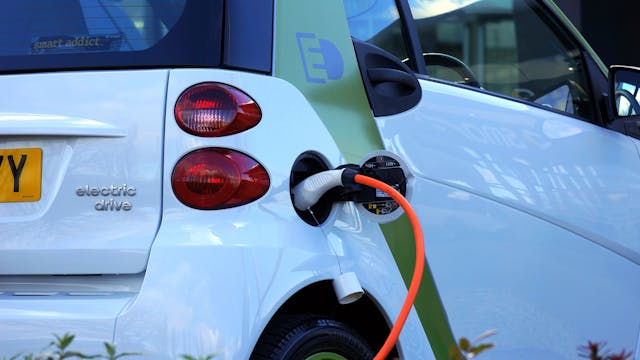Write Us: hello@ali5.org
Electric Vehicles: Are They Worth the Investment in 2025?
Thinking about going electric? Explore whether EVs are a smart investment in 2025, with real talk on cost, range, charging, and long-term savings.

You’ve seen them. Teslas, BYDs, Hyundais… gliding through traffic, charging in parking lots, showing up in YouTube ads. EVs aren’t rare anymore, they’re normal. But just because they’re popular doesn’t mean they’re the right fit for you.
So let’s ask the only question that matters: Is buying an EV in 2025 a smart decision? Not just for the environment, but for your daily life, your budget, and your long-term plans.
What’s Changed Since EVs First Showed Up?
A few years ago, electric cars felt more like science projects than real transportation. People hesitated for three big reasons:
-
The range was too short
-
Chargers were hard to find
-
They cost a fortune upfront
Now? Things have changed:
-
Range is better: Many models now go 300–500 km without breaking a sweat
-
Charging stations are way more common, even in smaller towns
-
Governments are helping: Tax breaks, free tolls, and registration discounts are making EVs more appealing and more affordable
In short, EVs have moved out of the luxury niche. They’re a legit option for everyday drivers.
Why More People Are Choosing EVs in 2025
⚡ 1. Cheaper to Run
This is where EVs shine. Charging, especially at home, is far cheaper than filling a gas tank. And with fewer parts under the hood, you’ll spend less on repairs, too.
No oil changes. No transmission issues. Even the brakes last longer.
Over five to ten years, those savings add up fast.
🌱 2. Cleaner, Quieter Driving
No tailpipe. No emissions when you drive. Even when powered by non-renewable electricity, most EVs still produce less overall pollution than traditional cars.
And manufacturers are stepping up:
-
Recycled materials in interiors
-
Cleaner battery production
-
Better recycling systems for used batteries
You’re not just buying a car, you’re making a cleaner choice that actually has a long-term impact.
📉 3. Resale Value Has Improved
EVs used to lose value fast. That’s no longer true.
With gas prices rising and cities cracking down on polluting vehicles, more buyers are hunting for affordable, used EVs. If you maintain yours well, selling it down the line won’t be a headache.
🔇 4. A Smoother, Quieter Ride
Here’s something you won’t see on a spec sheet: how satisfying it feels to drive an EV.
No engine noise. No gear shifts. Just smooth, instant acceleration. Once you get used to it, gas cars start to feel clunky.
But EVs Aren’t Perfect. Here’s the Flip Side
🔌 1. Charging Isn’t Effortless Everywhere
If you live in a house with a garage, you’re in luck. Just plug in at night and forget about it.
But:
-
Living in an apartment? Charging might be trickier
-
Long road trip? You’ll need to plan your route carefully
-
Fast chargers exist, but they’re not on every corner yet
The infrastructure’s better than before, but it’s not perfect.
💸 2. The Price Tag Still Hurts
Yes, prices are coming down. But most EVs still cost more up front than a similar gas-powered car. The long-term savings are real, but you still need to get past that initial payment.
So, unless you have the budget (or financing) to manage it, that higher sticker price could be a deal-breaker.
🔋 3. Batteries Don’t Last Forever
EV batteries are getting stronger, but they still wear down over time.
-
Most will last 8–10 years with normal use
-
You’ll gradually lose range as the battery ages
-
Replacing a battery out of warranty? That’ll cost you
Good brands offer solid battery warranties, but it’s something to factor in.
🧰 4. Repairs Can Be… Complicated
Gas cars? Any mechanic on your block can fix them.
EVs? Not so much. If you live far from a dealership or certified EV repair shop, even a basic fix might take longer or cost more.
Who Should Buy an EV in 2025?
Let’s keep it simple:
✅ An EV probably makes sense for you if:
-
You have a reliable place to charge
-
Most of your driving is in town or under 100 km/day
-
You plan to keep the car for 5+ years
-
You’re okay paying more now to save later
-
Reducing emissions matters to you
🚫 You might want to wait if:
-
You drive long distances regularly and don’t like planning routes
-
You live in an area with almost no charging infrastructure
-
You’re on a tight budget and can’t swing a higher upfront cost
-
You need a car that can be fixed by any neighborhood mechanic
Top EV Models to Watch in 2025
Looking at the EV market this year? Here are a few standout options across different price ranges:
-
Tesla Model 3 Highland – Sleek update, better range, smarter tech
-
BYD Seal – Affordable with solid safety and design
-
Hyundai Ioniq 6 – Stylish and efficient for everyday use
-
MG4 Electric – Budget-friendly with decent performance
-
Rivian R1S – A bold, rugged SUV with real adventure power
-
Nissan Leaf 2025 – Reliable, affordable, and great for city driving
Whether you’re on a tight budget or looking for premium features, there’s something out there for you.
Not Ready to Go Fully Electric? Try a Hybrid First
If you’re curious about EVs but not ready to commit, hybrids (and plug-in hybrids) are a great stepping stone. They still cut fuel use and emissions, without making you depend on chargers.
Ideal for drivers who live far from charging points or just want to test the waters.
Final Take: So, Are EVs Worth the Investment?
Here’s the bottom line:
If your lifestyle supports it, yes—EVs in 2025 are absolutely worth considering.
They’re:
-
Cheaper to run
-
Easier on the environment
-
Packed with features
-
Fun to drive
But they’re not magic. And they’re not for everyone.
Think through your driving habits, your budget, and where you’ll charge. The tech is strong. The savings are real. But like any big decision, it only works if it works for you.







